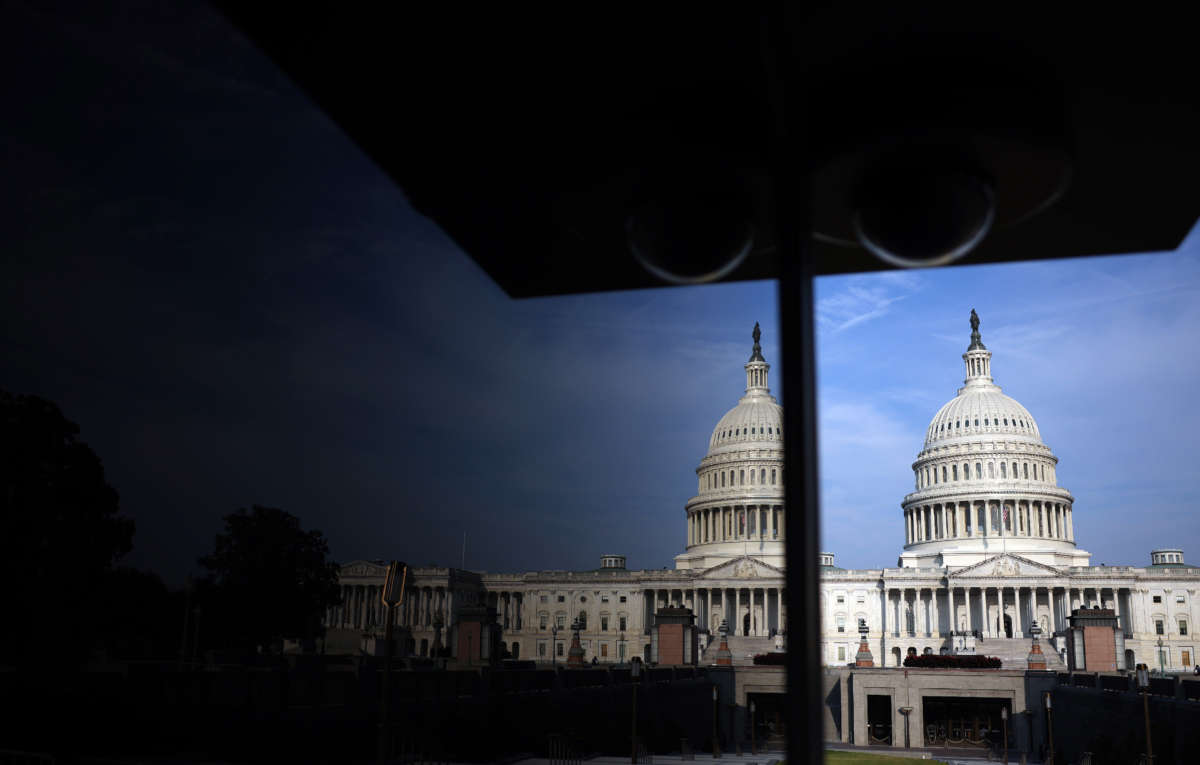Republicans have rejected a Democratic offer to wrap up outstanding final details on the bipartisan infrastructure package, imperiling promises from the Senate group to have the bill finished by Monday. This week is crucial for moving ahead on the bill, but there are still outstanding issues over things like funding for mass transit.
Republicans in the bipartisan group objected to Sen. Chuck Schumer’s (D-New York) filing to advance the bill last week, saying that the bill would be ready by Monday. Every Republican in the Senate voted against advancing the bill, making it fall far short of the 60 votes it needed to advance to debate on the floor.
Now, Monday has arrived, and there are still multiple issues that have yet to be hammered out within the group — and the two parties can’t even agree on which issues are still outstanding.
“The ‘global offer’ we received from the White House and Chuck Schumer was discouraging since it attempts to reopen numerous issues the bipartisan group had already agreed to,” a GOP source told CNN. Sen. Rob Portman (R-Ohio) said over the weekend that the outstanding issue was on funding for mass transit on the Republican side.
But, according to Democrats familiar with the negotiations, there are more unresolved issues than just mass transit. Funding for crucial infrastructure like highways, water and broadband are still in question. There’s also still disagreement in terms of how much of the leftover COVID stimulus funds can be used to pay for the bill and on a rule called the Davis-Bacon, which says that federal contractors can’t pay employees less than the “prevailing wage” for construction projects.
Senators were optimistic over the weekend that it can be done soon. “We’re down to the last couple of items, and I think you’re going to see a bill Monday afternoon,” Sen. Mark Warner (D-Virginia) said on Sunday on Fox News. With Republicans rejecting the Democrats’ last offer, that deadline could very well be missed.
If the senators come to an agreement on the bill soon, then Schumer could call a vote to advance the bill again this week. If it fails to garner the required votes, he’ll have to start the process of filing for cloture all over again, which could delay the bill even further.
Time is of the essence as the Senate is set to leave for recess in two weeks. House Speaker Nancy Pelosi (D-California) emphasized again over the weekend that she wants the Democrats’ $3.5 trillion reconciliation bill to be passed with the infrastructure bill, so this week is crucial for getting the bills moving.
Not only are Republicans in disagreement over what’s left to negotiate, they’ve also expressed frustration with Democrats over the transit issue. They claim to have made fair offers to Democrats on transit, and have threatened to withdraw their support unless the Democrats capitulate to their offers. “Unless Democrats show more flexibility, this deal is unlikely to happen,” a GOP source told Politico.
It isn’t much of a surprise that Republicans again seem to be delaying the infrastructure bill. They’ve held up the bill for months in negotiations, and are still unsatisfied with it despite having whittled it down to nearly an eighth of the original size that President Joe Biden had proposed. And, still, they blamed the delay on Monday on Democrats.
“If this is going to be successful, the White House will need to show more flexibility as Republicans have done and listen to the members of the group that produced this framework,” a GOP source told CNN. But the White House has already capitulated to a wide swath of Republican demands, watering the bill down to what it is today.
Instead, it’s Republicans who bear more responsibility for delaying the bill than Democrats. In the first Senate-wide vote on the measure, they had rejected Schumer’s cloture filing last week despite the fact that final details don’t need to be ironed out in order for the bill to advance to debate on the Senate floor, as the majority leader pointed out.
Democrats and progressives have said repeatedly that the months-long delay is a tactic employed by the GOP to polarize and water down Democratic proposals. They point to the example of the Affordable Care Act under President Barack Obama when Republicans similarly dragged out talks for months only to vote against it anyway. In the process, however, they achieved what they set out to do — politicize and weaken the bill considerably.
“My fear is that we could see a repetition of what we saw with the Affordable Care Act,” Sen. Bernie Sanders (I-Vermont) told ABC last week, “where discussions went on and on and on and then never went any place.”
Join us in defending the truth before it’s too late
The future of independent journalism is uncertain, and the consequences of losing it are too grave to ignore. To ensure Truthout remains safe, strong, and free, we need to raise $47,000 in the next 8 days. Every dollar raised goes directly toward the costs of producing news you can trust.
Please give what you can — because by supporting us with a tax-deductible donation, you’re not just preserving a source of news, you’re helping to safeguard what’s left of our democracy.
